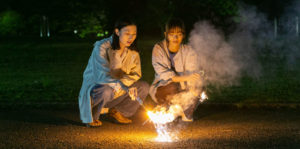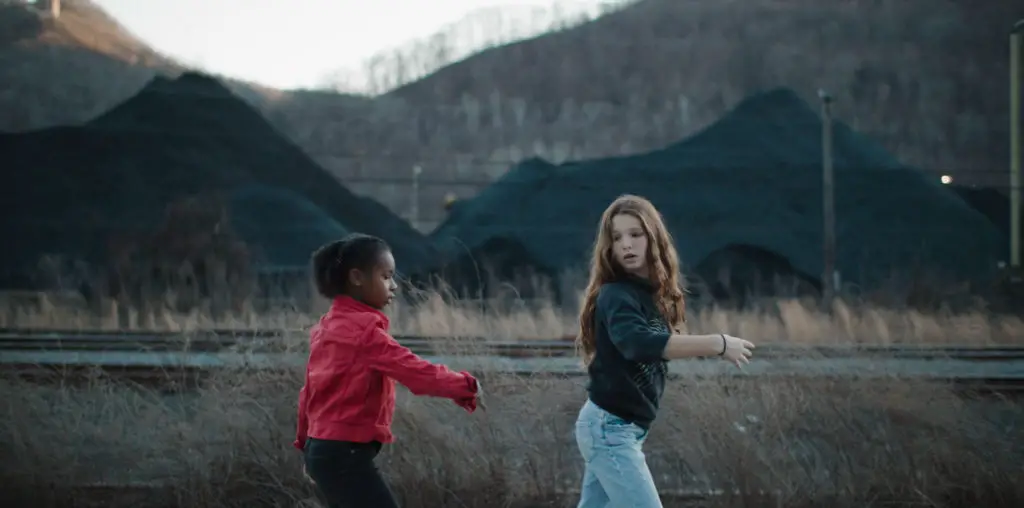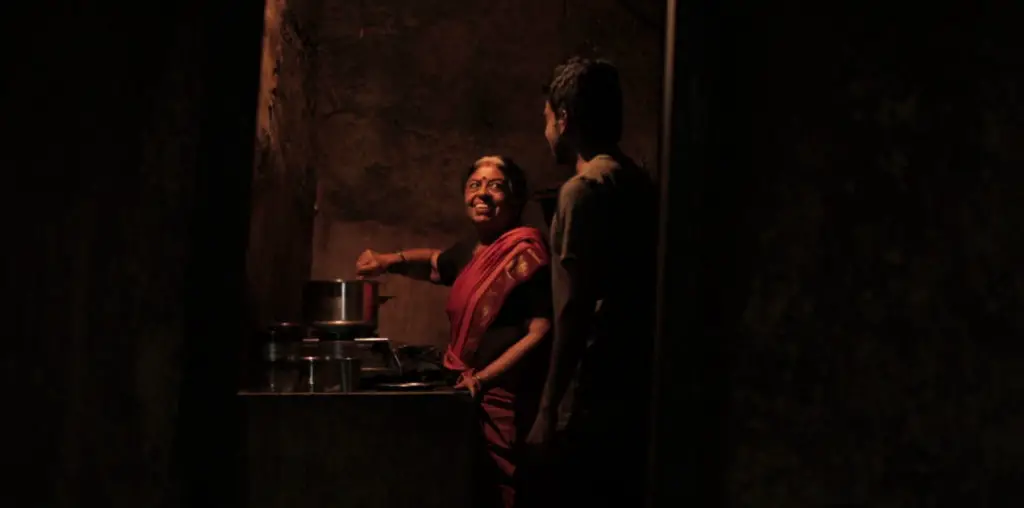
The best foreign films offer a window into a society that is distinct from our own. Of course, said films also need to offer something in terms of entertainment or insight. Writer-director Yui Kiyohara’s Remembering Every Night more than fits the bill. Understated yet powerful, it’s a meditative experience that may alienate audience members with a need for more urgency in their stories. But for patient viewers attuned to detail and patient pacing, the drama will certainly be one of the more memorable pictures of the year.
Kiyohara follows various individuals throughout, and it’s difficult to determine who is the main focus or if there even is one. After a few establishing shots of largely empty landscapes in a rural Tokyo suburb, she focuses briefly on an eclectic group of musicians noodling around in a park. Before long, though, we leave them (at least visually, because their playful music seems to provide much of the soundtrack) for a middle-aged woman on the hunt for work after losing her job. We then visit a young woman on her rounds, checking gas meters. The film switches gears again and tracks two young college students. Their lives are intertwined, and various characters bounce around them, emphasizing the interconnectedness of their realities.

“…a middle-aged woman on the hunt for work after losing her job.”
There’s an underpinning of societal anxiety at the heart of Remembering Every Night. Although Japan’s economic success post World War II is largely unparalleled, storm clouds are on the horizon. Its declining birth rate has all but caused a state of emergency in the country, and the demographic realities of a rapidly aging population will undoubtedly strain Japan’s once robust economy. Kiyohara doesn’t rub our faces in it, nor does the film necessarily serve as a cautionary tale. It’s evident, though, that the state of Japan isn’t lost on the filmmaker. The wide-open spaces filled with small, solitary figures contribute to a sense of uneasiness and loss of direction felt by many in the nation.
It’s hard to escape that feeling of loneliness. The narrative unfolds over the course of a single day, and as we follow these women around, the lack of meaningful interaction is noticeable. Individuals talk, but by and large, the conversations are perfunctory, reflecting a world where true connection is missing. The few moments of actual bonding are centered around dance and a sharing of fireworks on an otherwise quiet night. It takes a while to settle into the film’s unique rhythm, but once one does, it’s shockingly poignant. The future is indeed uncertain, but the importance of connecting to those around us will never be diminished.
It’s hard to imagine audiences weaned on Star Wars and the MCU sitting through something like this, but that’s their loss. Remembering Every Night is an ethereal experience that shouldn’t be missed. It reminds viewers that cinema is a visual art first and foremost and that the composition of the frame and movements within it often speak much louder than words ever can. There’s no contemporary comparison I can make to this, but that’s perhaps the largest compliment I can give. Yui Kiyohara is a filmmaker to watch.

"…ethereal experience that shouldn’t be missed."


